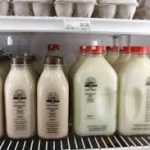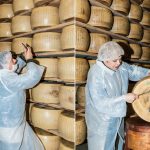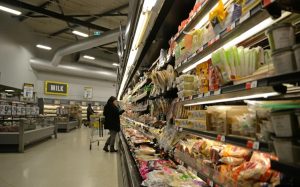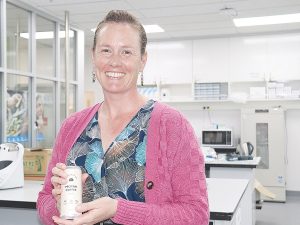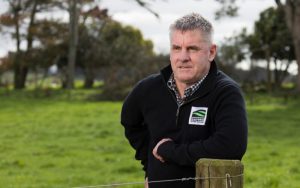
In Europe, legislation is being considered that would restrict the use of descriptions like pattie and steak to apply only to products containing meat and not to vegetarian alternatives.
Australian dairy farmers are also seeking to restrict the term to bovine dairy products.
Federated Farmers dairy spokesperson Chris Lewis said it was closely watching what was happening overseas.
“We’ll support our farmers worldwide in their efforts to bring [about] … fair labelling and if they get success we’ll have a chat with out Minister of Ag [agriculture] and engage with him,” Mr Lewis said.
While it was up to consumers to choose what they buy, the terms used to sell some plant-based products, such as almond milk, did not accurately represent what they were, he said.
“Be proud of what you’ve got and call it almond juice, it’s definitely not a milk under the definition in the Oxford Dictionary… so just clearly label what you’ve got,” Mr Lewis said.
“I just encourage other food producers if they’ve got a great story to tell, don’t piggy back off us.”
Fonterra chief science and technology officer Jeremy Hill said the dairy company held a firm view that consumers had a right to chose what they ate.
“But that choice should be informed, and at the moment I think these plant-based milks have a positioning that says they’re milk and plant-based, unfortunately from a content basis they’re providing inferior nutrition to what you find in dairy products,” he said.
Australian-based Suzy Spoon’s Vegetarian Butcher, makes a range of vegetarian meat alternatives, including patties, schnitzel and sausages.
Suzy Spoon said there had been significant growth in the alternative proteins market with consumers becoming more interested in where their food comes from.
This shift had put the agricultural sector into defense mode, Ms Spoon said.
“I think they do feel threatened, we saw it with Champagne … and so I can see it’s just the meat industry being protective of their terms,” she said.
New Zealand company Life Health Foods International makes a wide range of plant-based products, including almond and soy milk.
Executive general manager Bennie Hendricks didn’t think consumers were being misled.
Soy milk had been around for many years and at the end of the day the products was sold because it catered for consumers needs, he said.
“I’m pretty sure if you took the word ‘milk’ off the soy product, it would still sell,” Mr Hendricks said.
Agriculture Minister Damien O’Connor said the government was absolutely committed to “true to label” labelling, so if products were made from plants that should be stated clearly.
But he said the issue of whether it was called ‘meat’ or ‘milk’ was a difficult one.
“It’s something I’m prepared to look at and see what’s happening internationally but at this point there’s no move to restrict the use of those words,” Mr O’Connor said.

